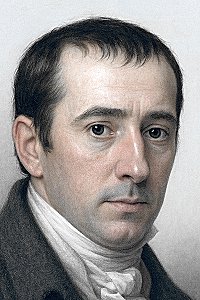Introduction

(1771–1854)
Words: James Montgomery, 1818. Montgomery wrote this hymn to accompany the Anniversary Sermons of the Red Hill Wesleyan Sunday School in Sheffield, England. The sermons were preached on March 15 and 16, 1818.
Music: Ferniehurst, from The Methodist Hymnal (New York & Cincinnati, Ohio: Methodist Book Concern, 1905), number 250 (🔊 pdf nwc).
Alternate Tunes:
- Chapin Joshua Gill, in The American Vocalist (Boston Massachusetts: D. H. Mansfield, 1848), number 207 (🔊 pdf nwc)
- St. Paul’s College George Lomas, 1876 (🔊 pdf nwc)